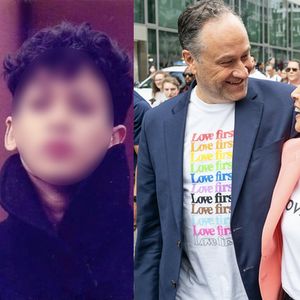Maryland may join
a growing number of states to put limits on protests at
military funerals amid fears that a conservative church
group from Kansas might target funerals with antigay picketing.
The bill, to be considered by a house committee
in Annapolis on Friday, would make Maryland at
least the 15th state to regulate funeral protests in
response to the Westboro Baptist Church of Topeka, Kan.,
which believes American military deaths are God's
retribution for tolerance of gay people. Church
members have publicly given thanks for soldiers'
deaths at military funerals, raising calls to regulate the protests.
"We shouldn't have to subject any family to
this," said Democratic delegate Mary-Dulany James, who
sponsored the bill. "I'm stunned anybody would do that
when people are grieving."
The measure would ban protests at funerals
within an hour before they start. It would also make
it a crime to obstruct mourners from funerals or
burials. Violations would be misdemeanors punishable by up
to 90 days in jail or a $1,000 fine.
Sponsors conceded that the bill could lead to
free-speech lawsuits if it is passed. The measure,
like in other states, is modeled after regulation of
protests at abortion clinics. Courts have ruled that some
limits on free speech, like the laws barring
protesters from blocking access to abortion clinics,
are allowed.
"We really don't think we're cutting off their
rights to protest or speak their minds," said
Democratic delegate Joan Cadden. "I just feel it's so
important for veterans and their families. It's such an
emotionally sad time for them."
Reached by telephone, a church member said the
group has never protested a funeral in Maryland but
would sue over the bill if it passes. Shirley
Phelps-Roper, daughter of Fred Phelps, head of the church,
equated the protest ban to "spitting in the face of God."
"They're going to give away rights that they
claim these soldiers have died for? They're going to
spit in their graves for what? Some words?"
Phelps-Roper said.
The Maryland American Civil Liberties Union said
it had not had time to review the bill but that it
might oppose it. The solution to objectionable
protests, said ACLU public education director Meredith
Curtis, is to speak up even louder in support of the veterans.
"The ACLU agrees that the message of this group
is reprehensible," she said. "I don't think that
soldiers' families should have to feel harassed. But
there needs to be an appropriate balance struck
between people's rights to speak, no matter how much we
disapprove of what they say, and the grief that families are experiencing."
James said she was confident her measure would
appropriately balance the two. "I'm very aware we have
to protect free speech. But there is a time and a
place, and funerals aren't the place," she said. (AP)


















































































